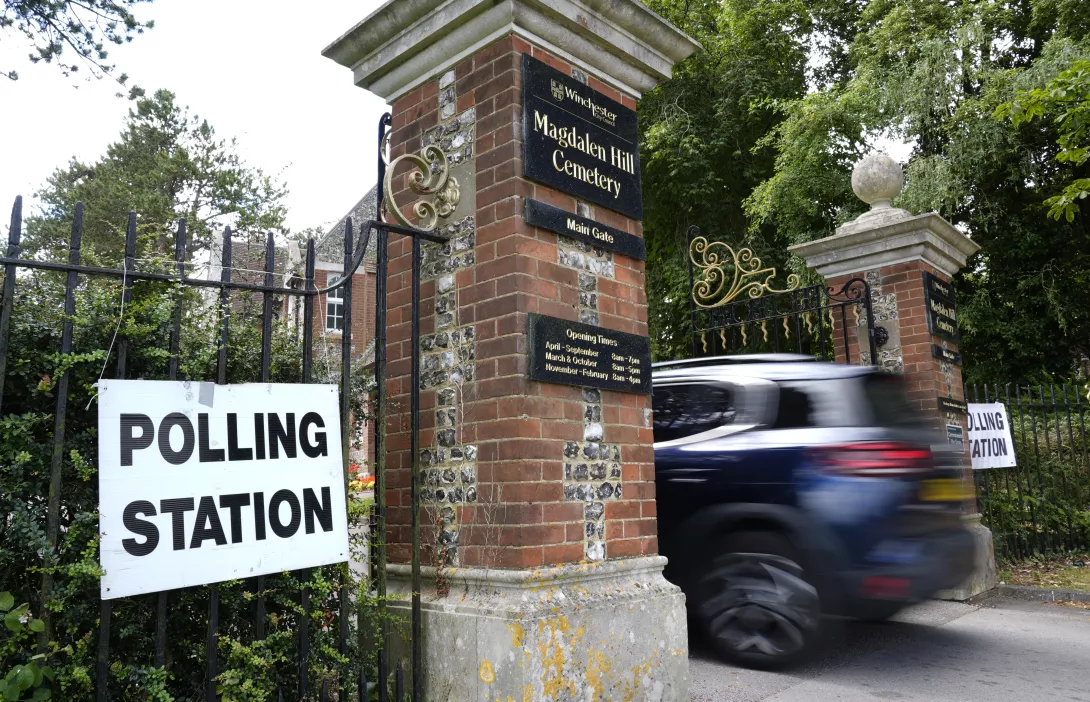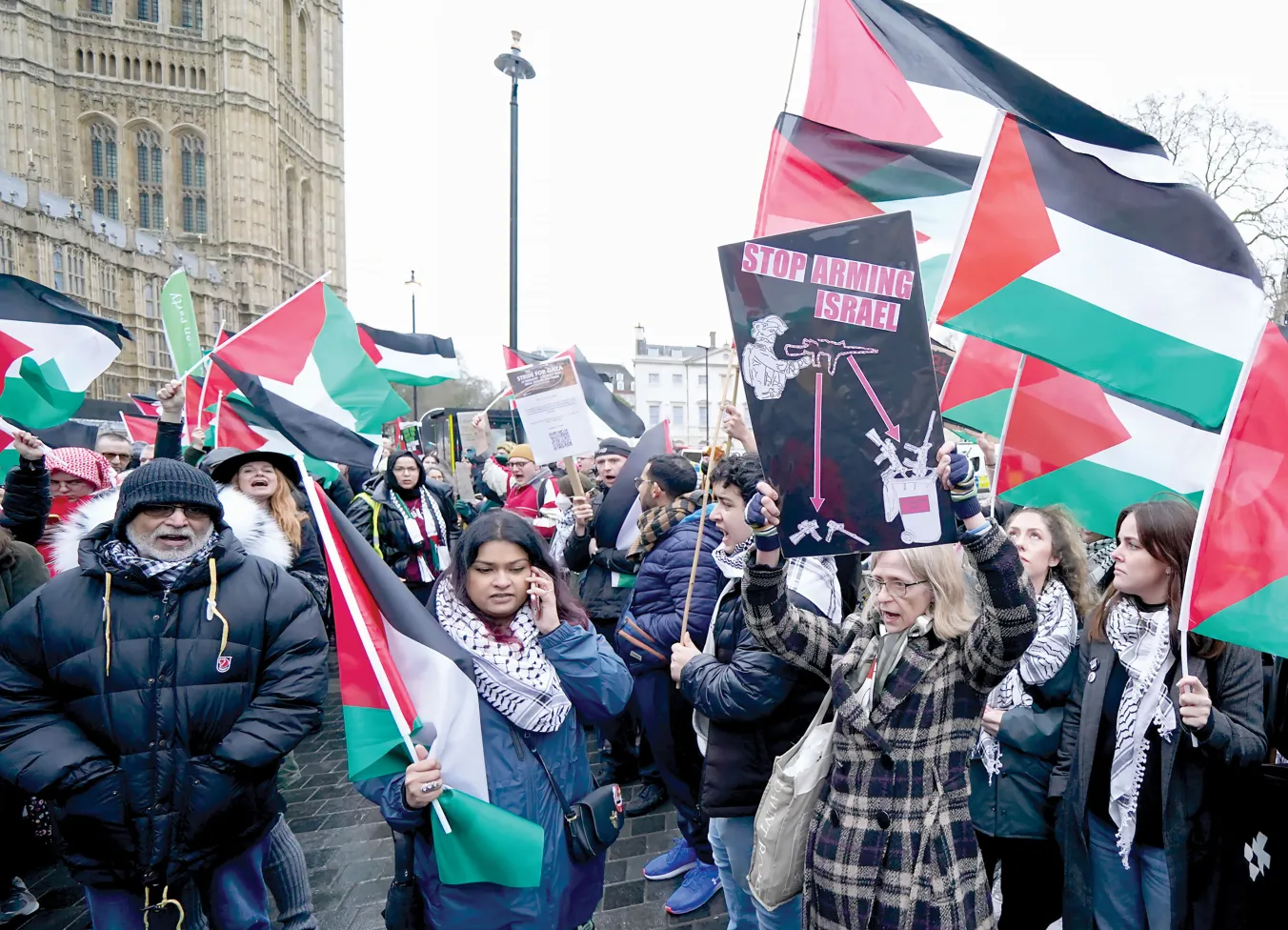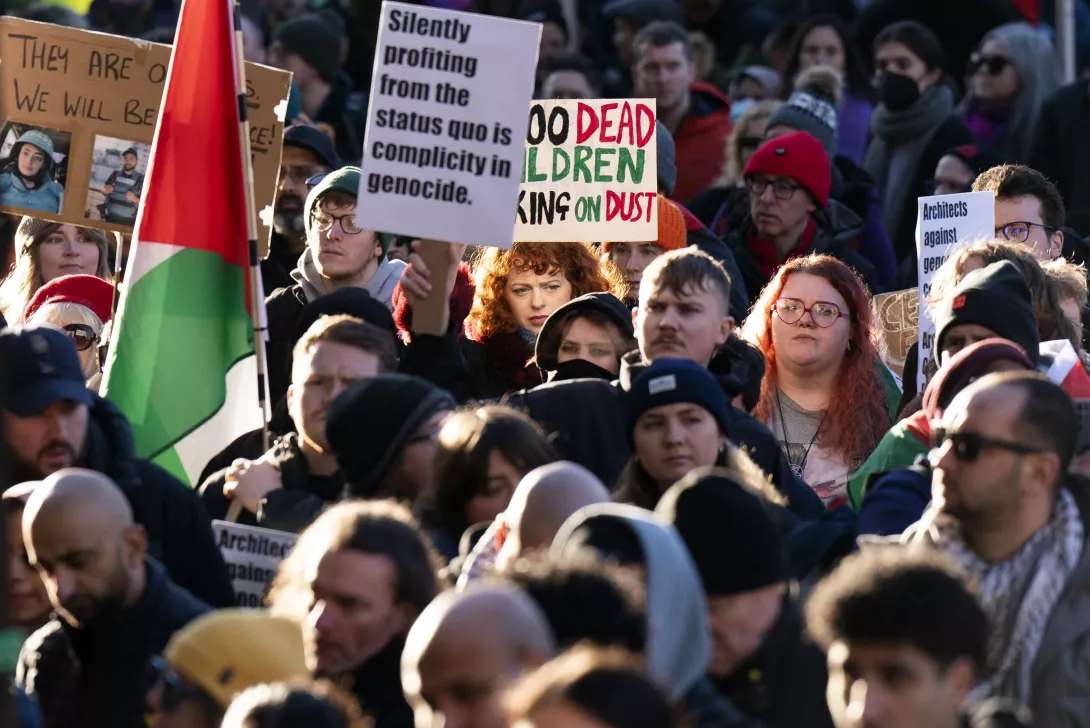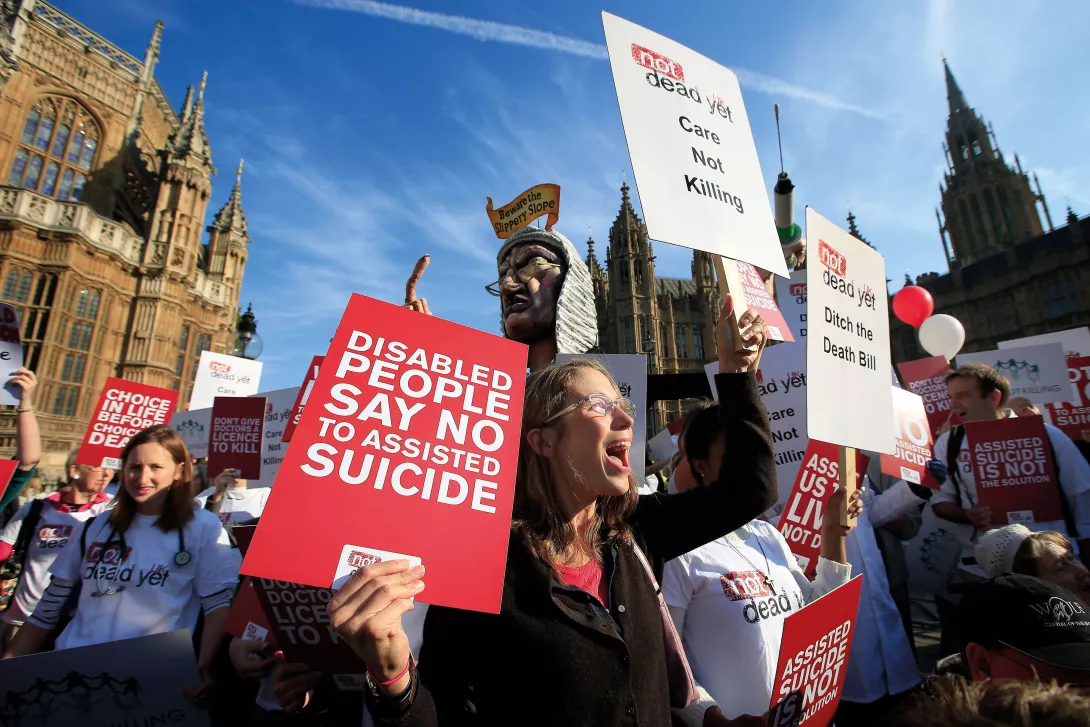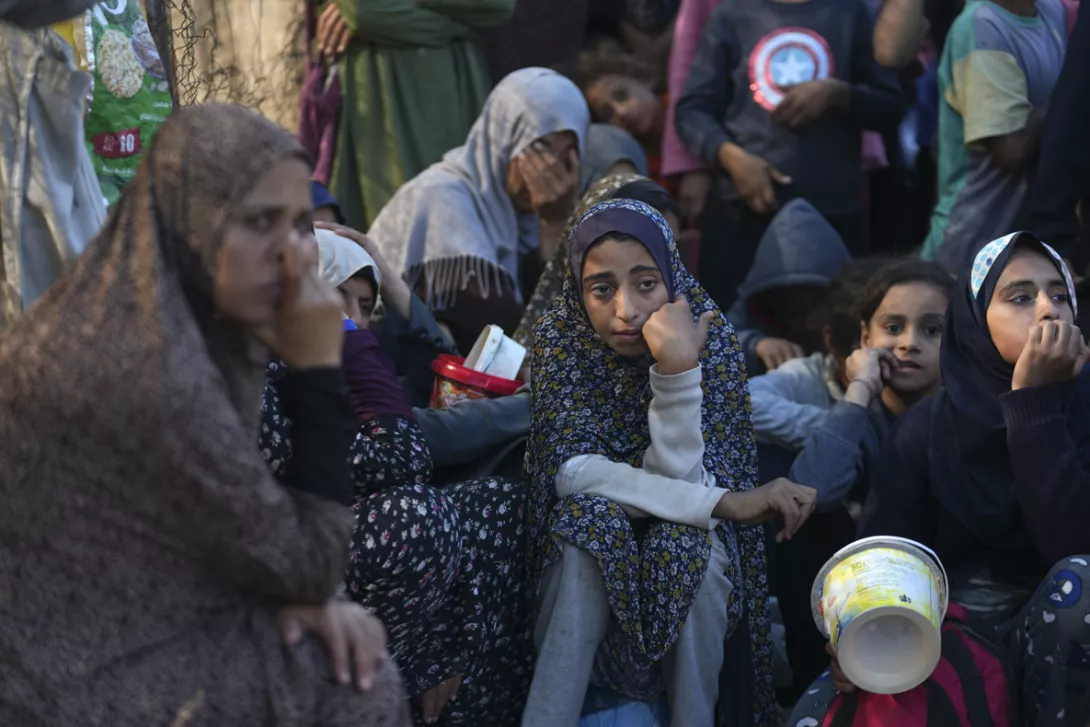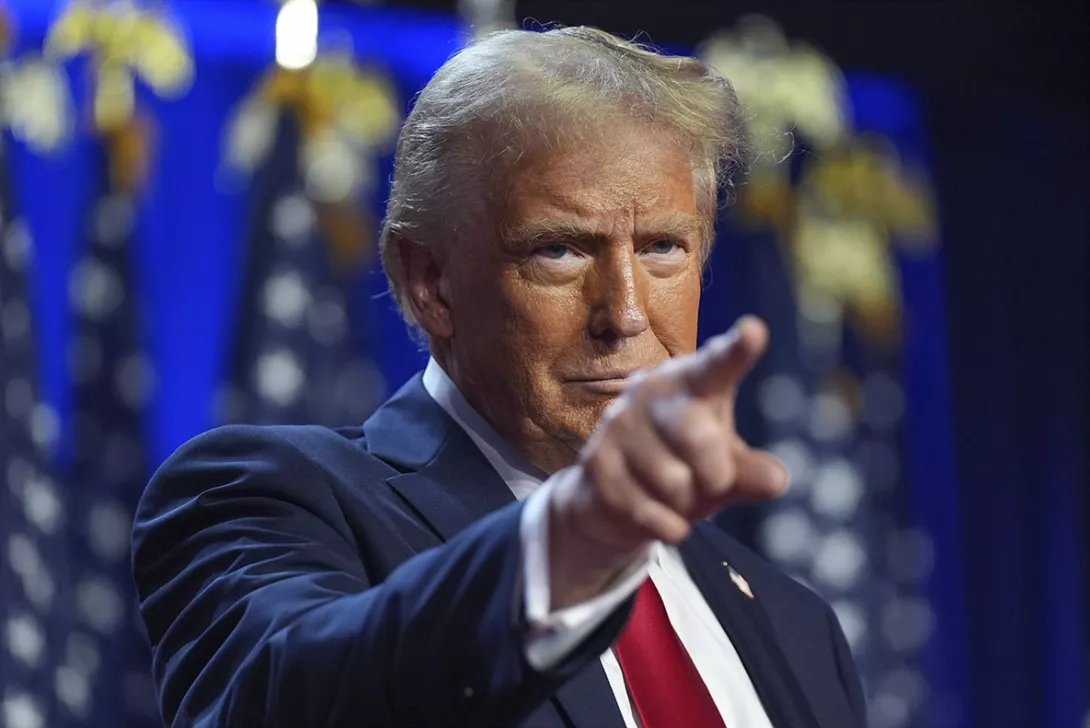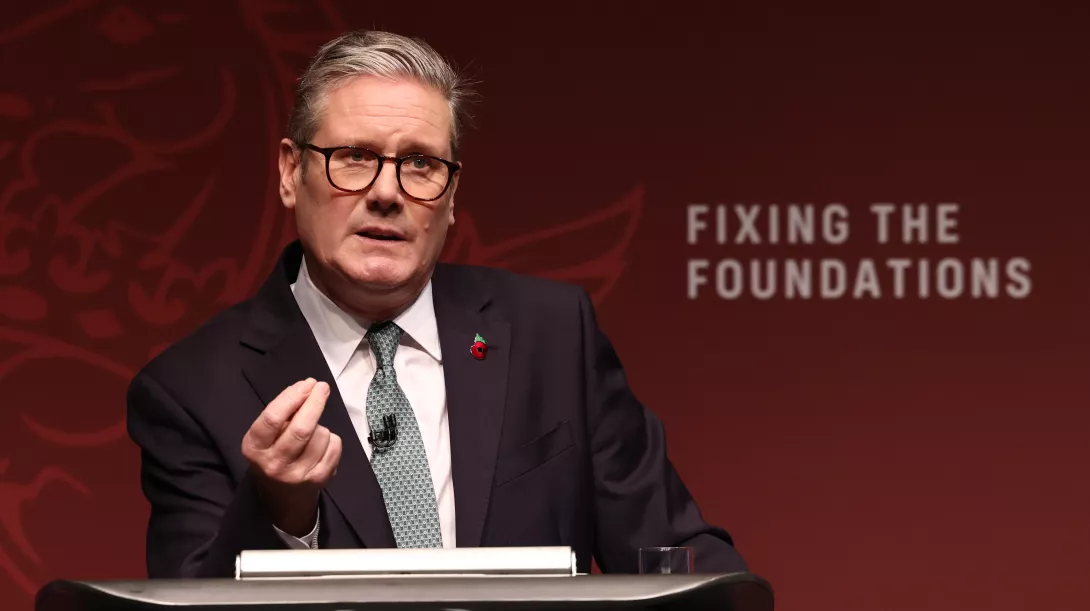
WHAT is the most significant issue in the general election? Surely it is the British state’s active support for the Israeli genocide against the Palestinian people.
After all, Labour and the Tories are fighting each other to be at the helm of a state up to its neck in that historic crime, refreshed this week by the barbarous assault on a Rafah refugee camp.
Neither Sunak nor Starmer will want to discuss this any more than they have to on the campaign trail.
Nor is the eventual outcome on July 4 likely to make much difference to state policy towards Palestine. Setting aside a recent squabble over the International Criminal Court, Labour and Tory positions are indistinguishable.
Departing Deputy Foreign Secretary Andrew Mitchell had the indecency to point this out, telling David Lammy after a typically blustering performance by the shadow foreign secretary that, underneath what he called Lammy’s “oratory,” the policies of the two parties “are not very different.”
The Gaza crisis is one sign of a central contradiction concerning the British state. In many respects, the state is visibly crumbling.
That is so not just in relation to the services the people expect it to deliver, from healthcare to education, but even in its core coercive functions.
The criminal justice and prison services seem to be breaking down, and the police struggle to meet the differing expectations of either rulers or ruled, let alone both.
However, the same state remains a potent military force, malfunctioning aircraft carriers notwithstanding.
The state’s domestic dysfunctionality will feature as an election issue in one form or another. Its international depravity will not, despite Gaza and the possibility that the US will have dragged us into ruinous conflict with China before the electorate is next consulted.
As this column has previously noted, the British state has engaged in an epic amount of violence around the world over the last quarter of a century — Yugoslavia, Afghanistan, Iraq, Sierra Leone, Libya, Syria, Yemen, the Gulf — as well as underwriting the Ukraine war and Israel.
None of these wars have had anything in the least to do with national security. Yet both parties are warning of more of them, and both will be looking at what else to cut in order to fund the military spending increases they are committed to.
This unity of domestic degradation on the one hand and armed expansionism on the other is the dialectic of imperialism today. Imperialism is a word which will scarcely escape the lips of a candidate from the main parties over the next five weeks.
Yet it contextualises everything that will be debated. Want more butter? Guns come first. Democracy endangered? We have to get the masses who have mobilised for Palestine off the streets.
Worried about racism and Islamophobia? Wars abroad breed divisions at home. Revive manufacturing? The City of London’s worldwide financial interests claim priority unless you are making munitions.
Action to tackle climate change? Only so long as it does not impede the global competitive hunt for value.
It may be an over-simplification to treat society’s ills as monocausal, but the British state sits within — near the heart indeed — of an integral world system, and imperialism is the most scientifically approximate name we can give it.
That gives elections for the British state’s front-of-house team some international significance.
For example, had Labour won under Jeremy Corbyn, its policy on Ukraine and Gaza would clearly have been different, oriented towards peace at the very least. That would not have turned the world upside down, but it would definitely have had an impact, quite apart from whatever example of progress his domestic agenda might have come to represent.
That is why working people across the world, in Latin America and the Middle East above all, and including the left across Europe, felt invested in a Labour victory in 2017 and 2019.
Not so in 2024. It is perhaps portentous for a newspaper columnist to speak of the interests of the international working class, but at that risk, let me venture that no conceivable outcome to the present election is going to make much of a difference to them.
The forthcoming campaign will, for by far the greatest part, be politically cramped, parochial and ultimately inconsequential. It will be another episode of bourgeois democracy demeaned to the level of entertainment, or a sporting clash.
The eyes of the world’s working people may look to the electoral fortunes of Corbyn, George Galloway and one or two others, but mostly they will be fixed elsewhere — mainly on the horrifying violence the British state continues to unleash on the world’s oppressed peoples.
Socialists here do have candidates to support, including some wearing the Labour rosette who did the minimum decency demands and supported a Gaza ceasefire at the first time of asking — particular personal shout-out to brave working-class young Muslim women Zarah Sultana and Apsana Begum. May they long retain their Commons presence without ever becoming parliamentarians.
But there can be no illusion that the central tasks of British socialists — joining in the global fight against British imperialism and working to break the power of the British bourgeois state — are on the ballot paper, at least as far as choosing a government goes.
The endless debate over the interweaving of mass politics and electoral campaigning is not going to be settled here. But looking at the last six months, at the outpourings of Braverman, Walney and Gove, it is pretty obvious where the present anxieties of the Establishment lie.
Are they more frightened of the pro-Palestine mass movement than they were of a Corbyn government? Probably not. But they are right now terrified of the former.
And recall that Corbynism was above all the product of the mass movements outside Parliament which he had always identified with, rather than any shift in Labour opinion in the Commons.
That connection with the mobilised masses was more worrying to the capitalist class than any single item in Corbyn’s policy agenda.
It contravened the first law of capitalist democracy: that the masses are invited to be spectators in the electoral determination of their destiny, rather than active makers of history.
For now, normal order is restored as far as constitutional politics is concerned.
But it is important to assert that if the outcome of this election will change little, that is not because little can be changed.
It is because the forces to blow open the fortress of bourgeois democracy are not assembled, although we can see their gathering in the streets and beyond.
The challenge to British imperialism and the state may find scant expression in this general election. But, as Georgi Dimitrov told the Nazi court, channelling Galileo Galilei, still it moves.
A hollow landslide
Very few general elections lead to surprising results. In my political lifetime, stretching back to the 1974 polls, there have been just two — 1992, when many, including myself, thought Kinnock would defeat John Major, and 2017, when Corbyn’s surge stunned the pundit class.
So I will limit myself to one prediction about July 4 — however many seats Starmer’s Labour 2024 wins, most likely a majority, it will secure fewer votes than the 12,878,000 got by Corbyn’s Labour in 2017.

